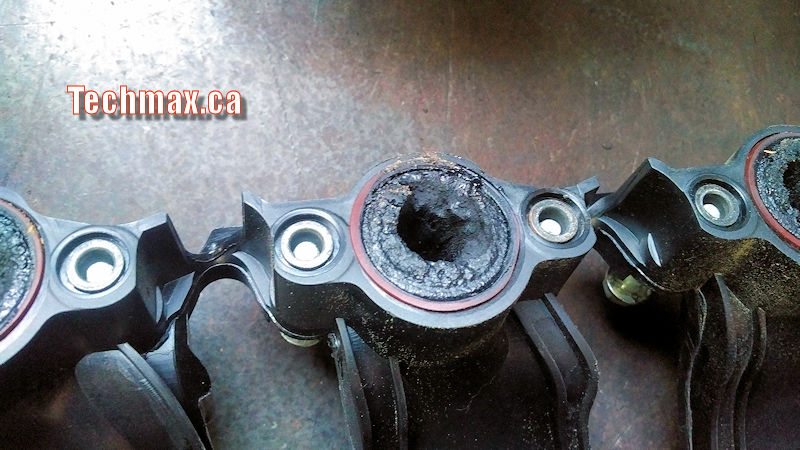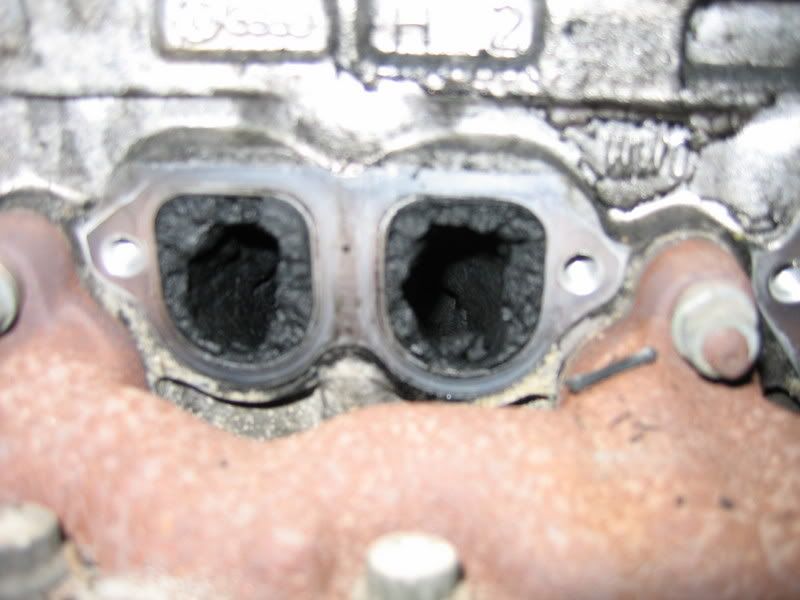My brother bought the car used so there's no way he could have known there was a design fault on the EGR design. As you say sorting it out is a huge job.
As for people causing death and destruction to others. How is the average owner to know that their engine is so badly clogged it's now poisoning wild flowers and giving people COPD. The issue looks to be endemic with diesels and petrols are not immune. VW direct injection petrol is noted for carbon clogged inlet valves. Google images "diesels with clogged inlet manifolds" and feast your eyes on a world of gunk.
I suggest that even a partially clogged engine is worse than one with a defeated EGR.
It's not unknown for 1.3 MJ engines to have clogged intake manifolds. There was a thread about that some time ago. This (not fiat this time) is from Australia. Quote -
Build-up of carbon in crankcase oil has been a problem for some time, but with common rail engines, usually turbo charged and fitted with EGR valves, carbon is building up in the inlet tract at an alarming rate in some engines.https://www.sunshinecoastdaily.com.au/news/servicing-modern-diesels-evils-carbon/2790426/
Some Google images -
VW TDI
BMW
VW petrol turbo




